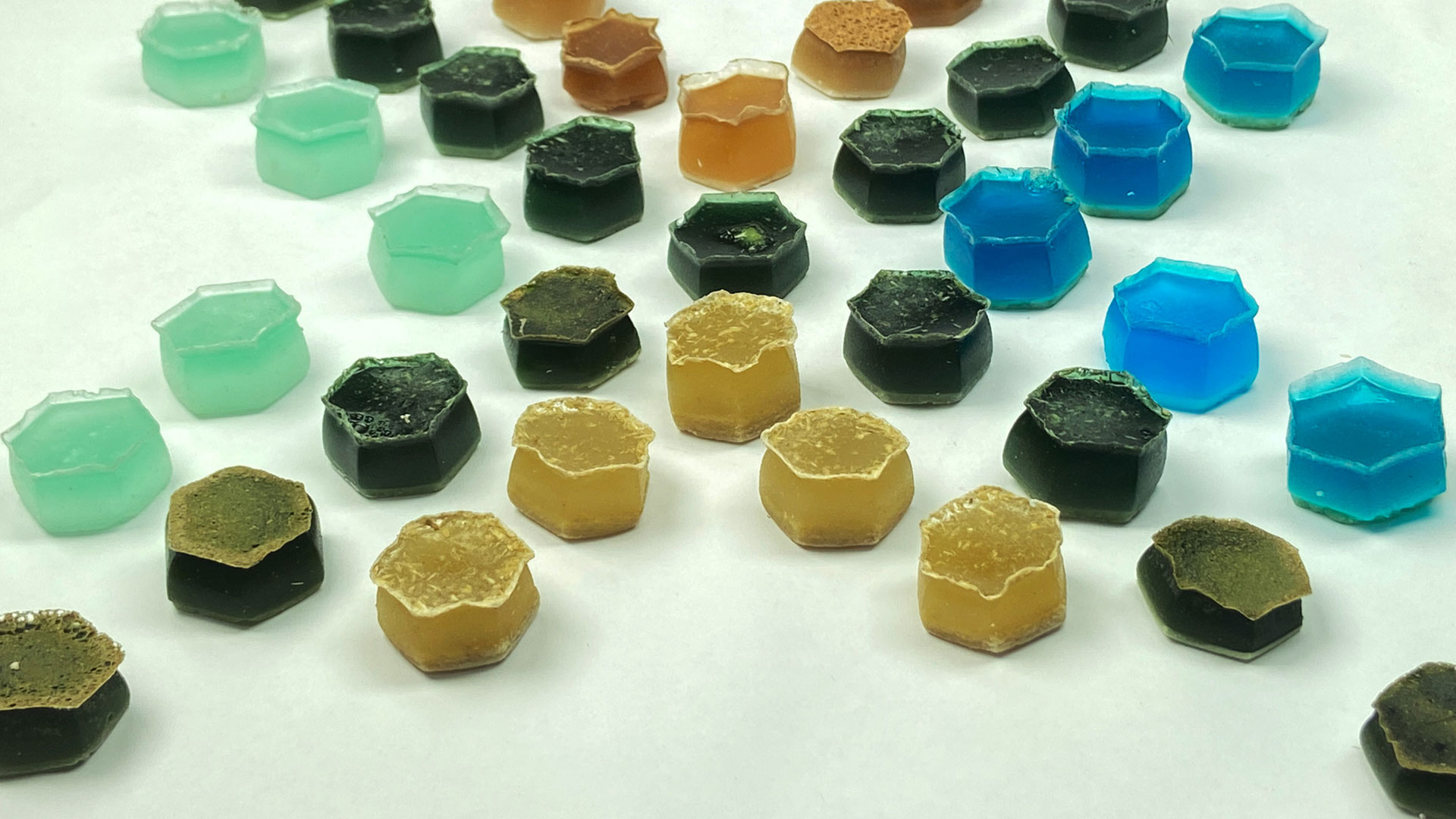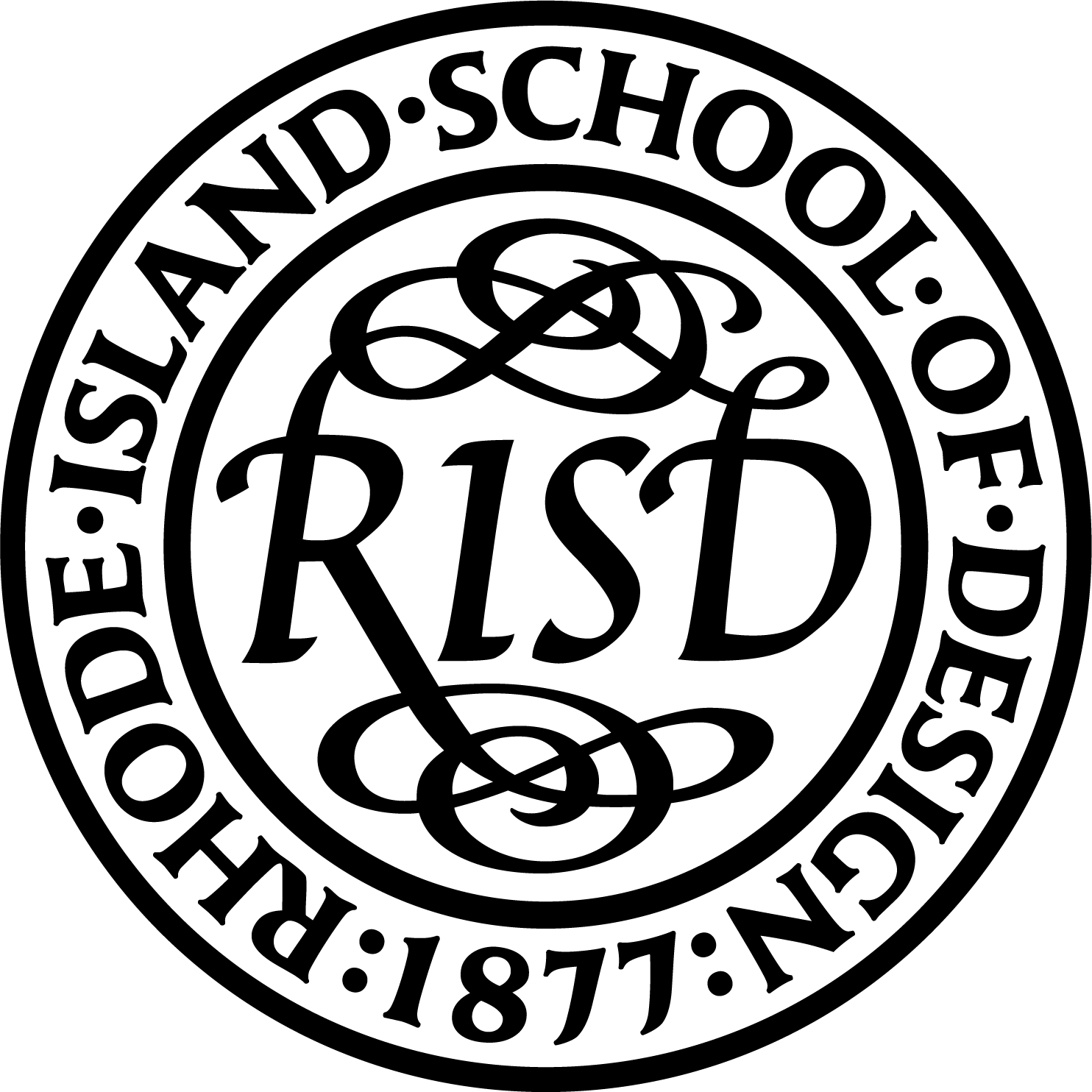Bioblock Packing Peanuts




︎ Creator:
RISD Biodesign:
Zhiyuan Fang
︎ Supervisors: Jennifer Bissonnette & Peter Yeadon
This study mainly focuses on gelatin-based bioplastics. Composed of gelatin, glycerin, and plant-based starch, these biodegradable biomaterials have several characteristics. They are thermoplastics, flexible, and tearable, which make bioplastics an ideal material for disposable packaging.
Knowing its characteristics, this project targeted online package delivery, because it has become an essential part of our lives, especially during COVID. According to a New York Times study, Amazon’s profit rate has skyrocketed to 200% during the pandemic. Millions of packages have been delivered, creating more packaging waste than ever, which can be replaced by bioplastics for better sustainability.
In the shipping industry, packing peanuts and other impact-absorbing products have been widely used to protect fragile goods. Made out of polystyrene, such products can be harmful to the human body and the environment. By extruding bioplastic resin to blocks of bioplastic, I was able to achieve an end product that’s akin to packing peanuts.
Cork dust and wood dust, waste materials that can be reused, have been added to the recipe to achieve better shock absorption and overall strength. This modified recipe is also used to create shipping bags, since it is harder to tear. Using the packing peanuts as a reference, I have performed a series of impact tests. The results of the tests demonstrate that my outcome is comparable to conventional approaches. However, my bioblocks are heavier and easier to break down when in contact with some elements.
The end product is not meant to be a direct replacement of conventional packing peanuts. The bio-friendly packing peanuts on the market mostly utilize corn or grain-based starch, which has more rigidity compared to my outcomes. The flexible nature of my bioplastic makes it more suitable to be used to protect fragile produce, such as grapes, berries, and eggs. It is also superior in terms of aesthetics, making it suitable for high end fragile products, such as perfumes.
︎ Supervisors: Jennifer Bissonnette & Peter Yeadon
This study mainly focuses on gelatin-based bioplastics. Composed of gelatin, glycerin, and plant-based starch, these biodegradable biomaterials have several characteristics. They are thermoplastics, flexible, and tearable, which make bioplastics an ideal material for disposable packaging.
Knowing its characteristics, this project targeted online package delivery, because it has become an essential part of our lives, especially during COVID. According to a New York Times study, Amazon’s profit rate has skyrocketed to 200% during the pandemic. Millions of packages have been delivered, creating more packaging waste than ever, which can be replaced by bioplastics for better sustainability.
In the shipping industry, packing peanuts and other impact-absorbing products have been widely used to protect fragile goods. Made out of polystyrene, such products can be harmful to the human body and the environment. By extruding bioplastic resin to blocks of bioplastic, I was able to achieve an end product that’s akin to packing peanuts.
Cork dust and wood dust, waste materials that can be reused, have been added to the recipe to achieve better shock absorption and overall strength. This modified recipe is also used to create shipping bags, since it is harder to tear. Using the packing peanuts as a reference, I have performed a series of impact tests. The results of the tests demonstrate that my outcome is comparable to conventional approaches. However, my bioblocks are heavier and easier to break down when in contact with some elements.
The end product is not meant to be a direct replacement of conventional packing peanuts. The bio-friendly packing peanuts on the market mostly utilize corn or grain-based starch, which has more rigidity compared to my outcomes. The flexible nature of my bioplastic makes it more suitable to be used to protect fragile produce, such as grapes, berries, and eggs. It is also superior in terms of aesthetics, making it suitable for high end fragile products, such as perfumes.
